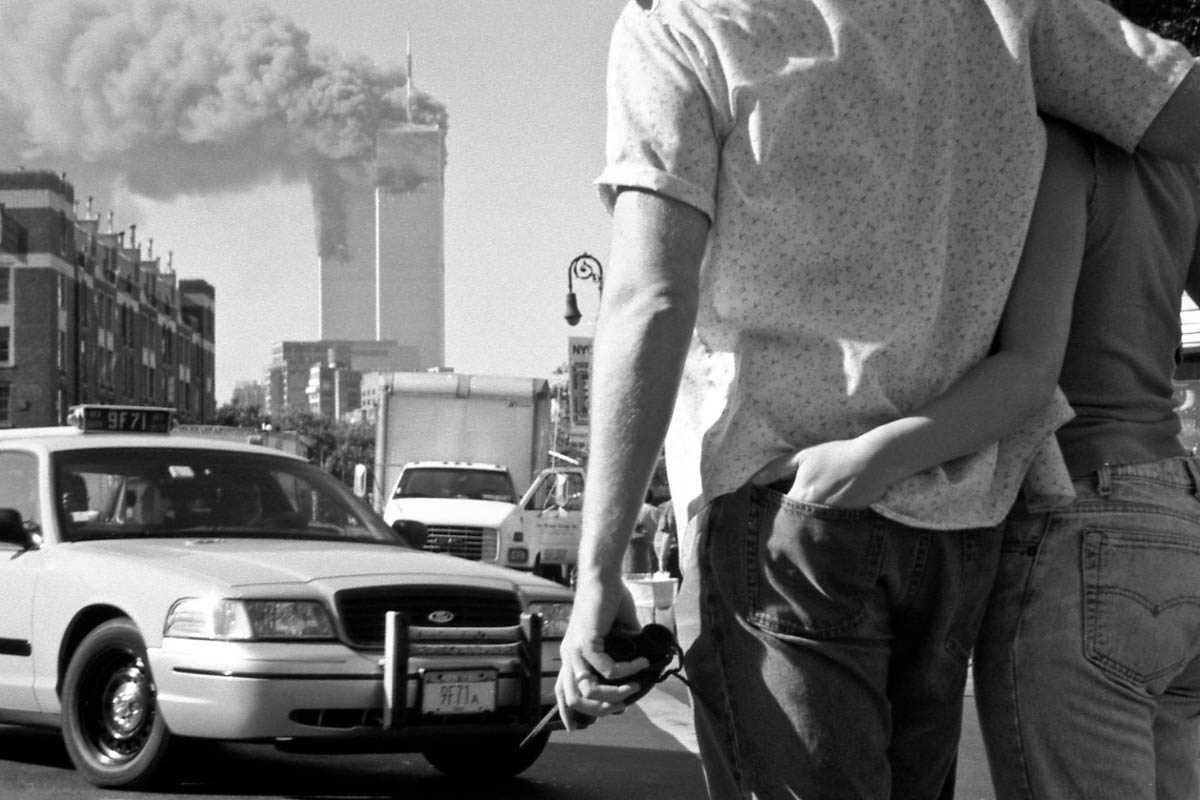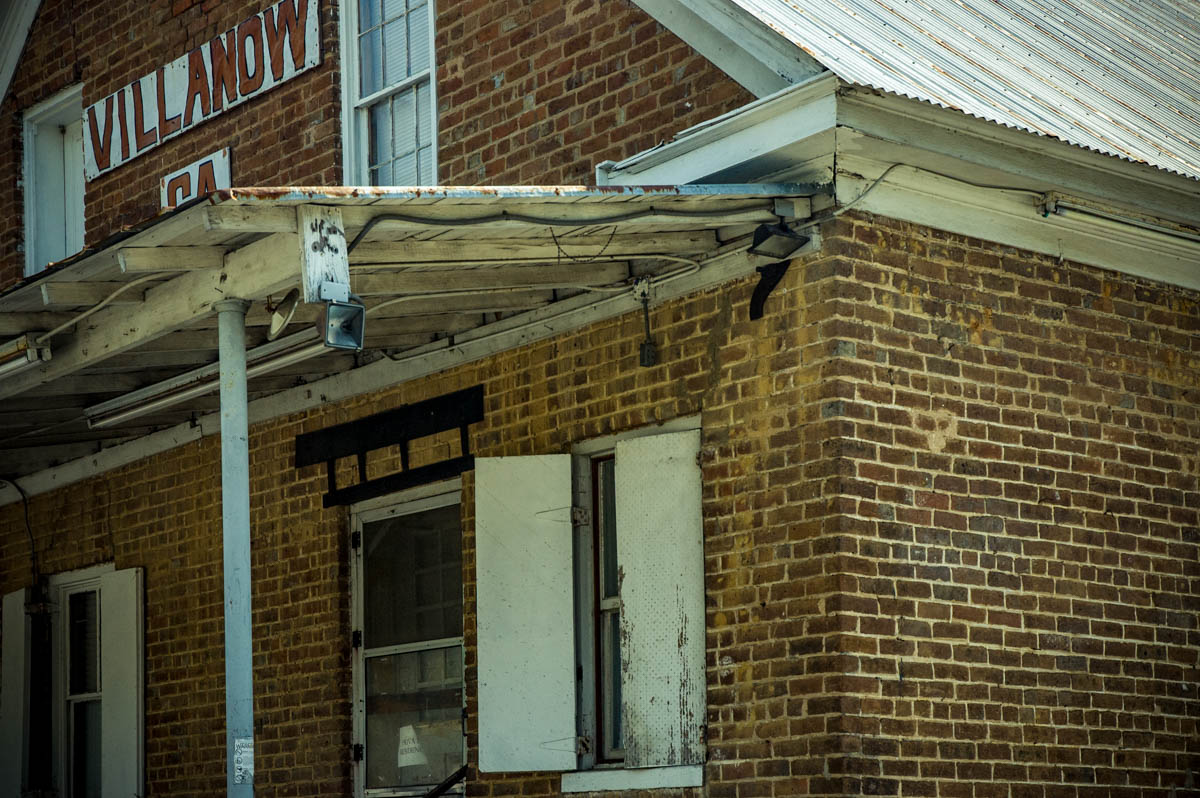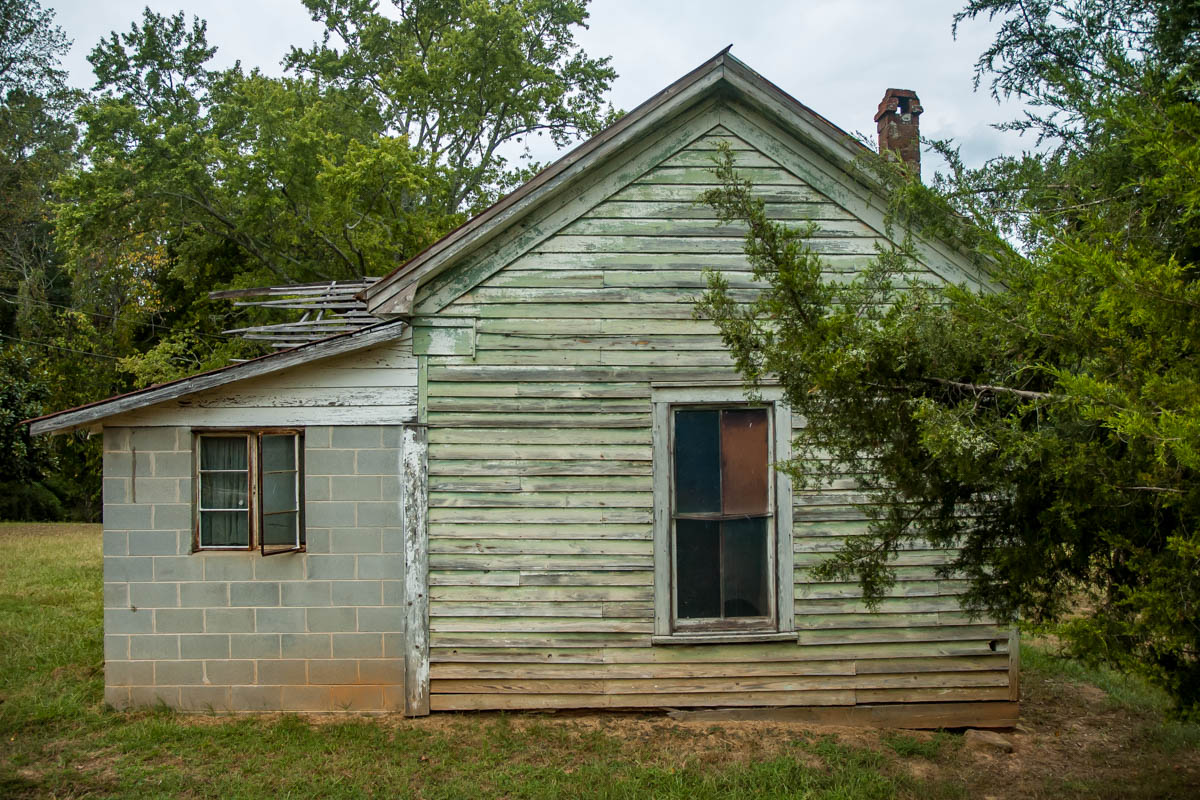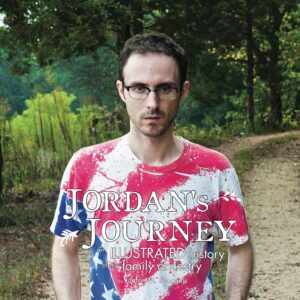The Language of Genealogy
Learning about family history teaches you a lot about history in general. The obvious areas are things like the Civil War and even World War II. When you connect your family to the collective stories of history, suddenly those grand narratives seem a bit more personal.


As a New Yorker, I can’t help but wonder how the next generation will look back and remember 9/11. As it is, I already know people who were not alive in 2001. But I lived through it. I watched those towers fall with my own eyes. I photographed them as they burned and fell (this is one of my photos here). I lived in the no-entry zone and had to show a photo ID just to get into my neighborhood. I walked over to the West Side Highway and stood with other New Yorkers cheering on firefighters who sped up and down the highway for weeks on end after those towers fell. How does my personal experience translate to the pages of history we see presented in books and documentaries? It doesn’t. The pages of history record the grand narratives and the dramatic events. But the quiet recollections of those of us who lived through it are just as important.
Often when people look at events around us–the events we know will one day be studied in history books everywhere–we talk about how much history has changed. In the case of 9/11, we use terms like “terrorism” to try and define what happened. Language, though, is limiting. The very moment we put words to tongue we somehow fail ourselves. Yet also those words are something we can’t do without. It’s important to be aware of the limitations we create through language, how our own words confine us, and how–hopefully–we can transcend them.
When we hear about violent events–say, for example, another shooting has made the news–many of us react with a “What’s happening to the world?” kind of attitude. The truth is that nothing is happening… at least nothing that unusual. We have a tendency to romanticize the past as if it represents some sort of ideal. This type of nostalgia for the past is something we all do, and it’s another way in which language fails us. Matt Novak, writing about the public’s perception of the history of the space program, warns that “romanticization of the past has real-world consequences because it breeds a certain kind of futility, a belief that we’re simply not able to accomplish things without every American behind the idea.”
For most of us, history is learned in language that glorifies the good parts, polishes them over for more than they’re worth, and skims over the bad parts. But those “bad” parts hold a lot of value and can, potentially, teach us just as much if not more than the “good” parts. History is not good. History is not bad. History just… is (or maybe “was”).
This idea of language and memory applies at the genealogical level too. Reading through old news items in the Summerville News and Walker County Messenger—newspapers are a great source for forgotten historical information–I picked out a number of examples of gun violence. I chose gun violence because these examples feel almost anachronistic at first reading. I think of gun violence as a relatively modern problem.
But here it is in Villanow in January 1893:
Wednesday of last week there was a fight in East Armuchee between Bill Short and Dock Kinsey in which the later was badly hurt. At the time West the father of Bill said some hard things of the Goodson’s. Saturday there was a good crowd out at the precinct. Between three and four P.M. Jacob Goodson was standing near Cavenders store. Wesley Short called him to one side, as to what followed, there are two statements, one is that Mr. Short was not shot until he had turned to leave. The other is that the conversation ended by Short drawing his knife, raising it and saying with an oath that he was going to cut Goodson’s throat. Goodson was prepared and commenced shooting. He emptied his revolver rapidly, three of the five shots taking effect, one struck the bone back of the right ear and ranged around, two hit the right arm, one near and the other above the elbow, the last entered the arm and ranged along it and penetrated the body just below the shoulder. The shooting led to intense excitement in the large crowd. Bailiff Ware immediately arrested Mr. Goodson and deputized Mr. Marshall to take charge of him. As Mr. Goodson thought the excitement would continue as he remained, he and the deputy walked off. Some of his friends followed him, among them his brother, Jesse. Between Jesse and his brother-in-law Charlie Phillips [Note: Charlie Phillips is actually the brother-in-law of Jesse Goodson’s wife, not Jesse] there has been bad feeling. After those following Mr. Goodson had gotten off some distance, Charlie was deputized to arrest Jesse. In an exciting manner, he ran after him, Jesse stopped and as he came up, fired at him twice without effect, one ball passed through his clothes. Mr. Phillips returned to the store. Wesley Short, the wounded man, after keeping his feet about 15 minutes, turned sick and was given a bed in the store. Mr. Cavender then had his hack brought out and making him as comfortable as possible, sent him home. Opinion is divided as to his chances for recovery. Some soldiers think he may pull through, while most say the chances are against him. Bond was promptly given by the two brothers, that of Jacob Goodson being fixed by Squire M.G. Clement at $2000.00 and of Jesse at $500.00 (Grigsby, Walker).



Jacob and Jesse are my 2nd great grand uncles. M.G. Clement is my 3rd great-grandfather.
Ok, so two men having a shoot-out doesn’t sound too unusual. After all, duels are certainly something we think about in an historical context, such as the Burr-Hamilton duel from 1804, not to mention how Hollywood would have us believe it happened almost every day in the wild west. But these types of shooting duels did happen in Armuchee Valley and beyond.
Down in Gore in Dirttown Valley, it happened even at church one day in April 1893:
“Thomas Morton, son of G.W. Morton, of near Subligna was shot in the leg last Sunday by a man by the name of Bud Stewart. The wound was slight and no serious results will follow. Some difference between the two men came up while at church. They agreed to go off in the woods and settle it, soon after which a pistol shot was heard with the result as above stated. Young Morton walked home after being wounded when Dr. Ballenger cut out the ball and dressed the wound” (Grigsby, Summerville).
I hope I never have to settle a score that way! It must have been a serious misunderstanding, though. Mr. Morton left Dirttown Valley–left Georgia altogether–and ultimately settled in Pinal County, Arizona.
But what about more domestic incidents? When I was a child, I remember hearing news stories about children getting hold of their parent’s loaded guns and accidentally pulling the trigger. Surely children are worse behaved today, and this is a modern phenomenon, right?
Unfortunately, not so:
“The saddest accident that ever occurred in this valley occurred at the residence of Mr. Holcombs Friday night when Dayton Pledger accidentally shot and killed his brother Bennie. The remains were entered (sic) at Pleasant Grove Sunday. Rev.’s W.C. Cordle and B.F. Hunt conducted the funeral service” (Grigsby, Summerville).



That happened in February 1903 at the home (pictured here) of my 2nd great-grandfather William Jackson Holcomb (the one who lived in Caney Fork, Arkansas as a boy). Dayton was 13, and Bennie was 11 years old at the time.
The fact is that violence is around us all the time. It has always been that way. It’s part of life. Sometimes it comes in the form of personal mishaps like the death of little Bennie Pledger. Other times we get caught up in collective tragedies like 9/11. Whether talking about tragedy or triumph, how we describe history is an approximation at best. Bennie Pledger’s fate was virtually forgotten, but were it not for that brief snippet in the Summerville News we would probably never know his endgame. By contrast, 9/11 looms large in our consciousness because of the sheer magnitude of the event. It impacted so many people. Language, too, plays a part in how we remember that day, from the endless media coverage to the repetition of names sculpted into the fountain at the 9/11 Memorial here in Manhattan.
So, too, I remind you that language plays a big part in genealogy. The truth is that most of us would never be remembered without language. How many times have you looked at an antique photo and wished someone had written down a name to identify the person? Language is what allows us to preserve the memory of those who came before us. Language helps us grasp at the undefinable. And even when we get it wrong–which we often do–the effort is not futile because it sparks our imagination. Imagination, love, language… art. These tools allow me to look inside. Genealogy is as much about an inward journey as it is a trip into the past.
Don’t be afraid to take a look and see what you can find.
Special thanks to Nelda Scoggin Reynolds for her ongoing assistance in working with the Grigsby transcriptions, helping to unravel new connections, and identifying people in the tree.
SOURCES
Grigsby, David & Delores, comp. Summerville News 1891-1903. This document was dictated from copies of the Summerville News on microfilm at the Summerville Library in 1987 and later transcribed.
Grigsby, David & Delores, comp. Walker County Messenger 1881-1900. This document was dictated from copies of the Walker County Messenger on microfilm in the 1980’s and later transcribed.
Novak, Matt. “How Space-Age Nostalgia Hobbles Our Future.” Slate. 15 May 2012. Web. Accessed 25 Sep 2012.
Take a trip into the past
Thanks for visiting the Jordan's Journey blog archive. These posts have been made available here for continued reference and research purposes.
The original book is available to order from our shop or your favorite bookseller.
For questions or other inquiries: get in touch.




Good post! I appreciate the thought-provoking “Language is what allows us to preserve the memory of those who came before us” and especially like your sentiment: “Genealogy is as much about an inward journey as it is a trip into the past.”
Thank you, Dawn. In my experience, genealogy really is much more than register reports and descendant charts. My exploration of the past has connected me more fully to myself and allows for a type of understanding I never expected to find. I hope to help others discover this aspect of genealogy for themselves.
Great post, Jordan! I found your site through The Armchair Genealogist’s Monday Morning Mentions.
I’m currently writing about my husband’s Afro-Am ancestors in the mid-1850s. You are so right about using language to accurately interpret the past, and not romanticizing history.
I have discovered that people were more mobile than I had believed; and, after reading The Waterman’s Song, found out what life at the city warf was like…something I had totally ignored in my first draft!
Looking forward to seeing more of your work! And I hope you’ll stop be to see what I’ve been doing on In Black And White: Cross-Cultural Genealogy.
Debra,
Thanks so much for visiting and leaving a comment. I, too, have been surprised at how mobile some people were “back in the day.” I somehow always had this idea that before the era of the automobile, people sat in one place most of the time. But it simply isn’t the case. It’s so interesting to consider when I look at some of the people I encounter today and compare how little they have traveled to how much some of my ancestors got around!
Definitely checking out your blog and thanks again for visiting!
Jordan